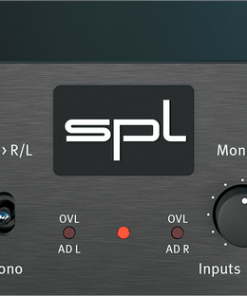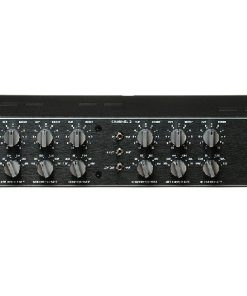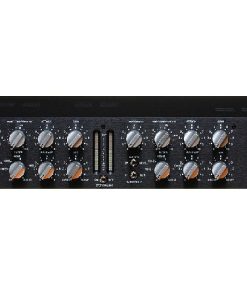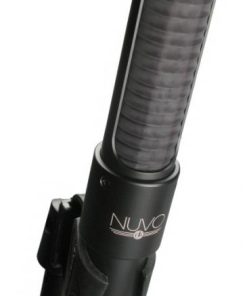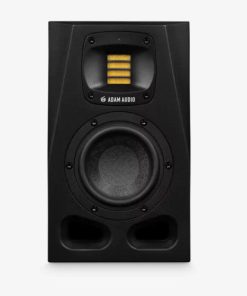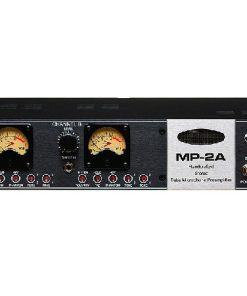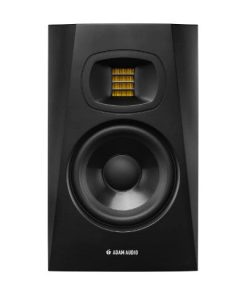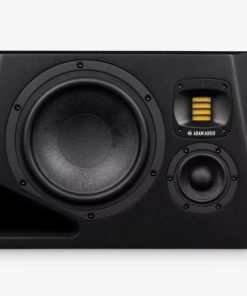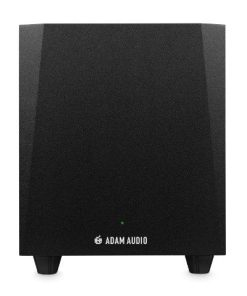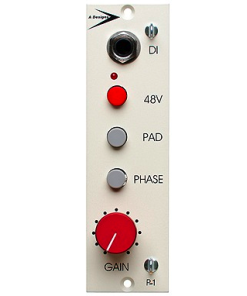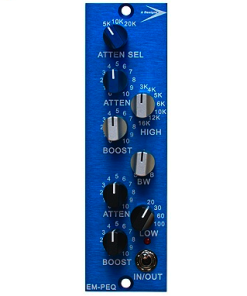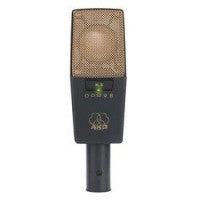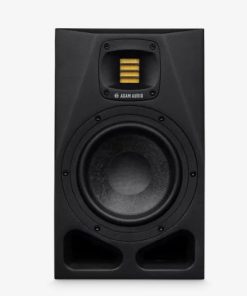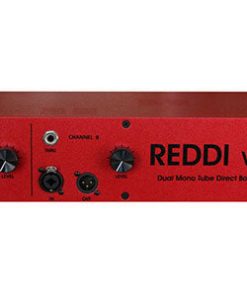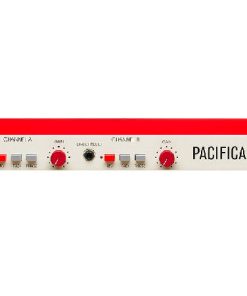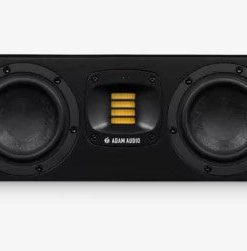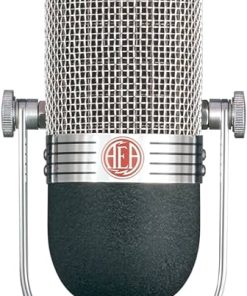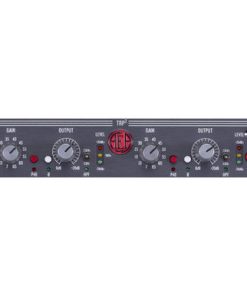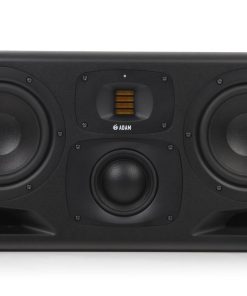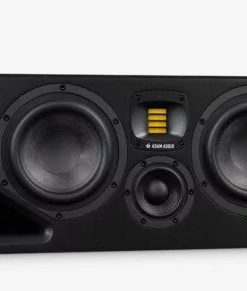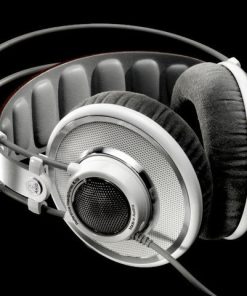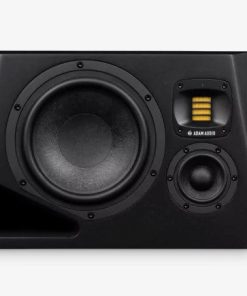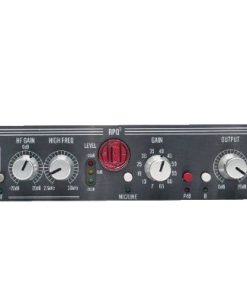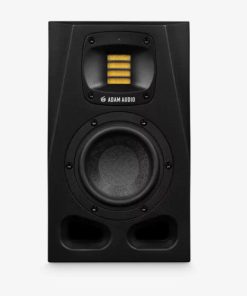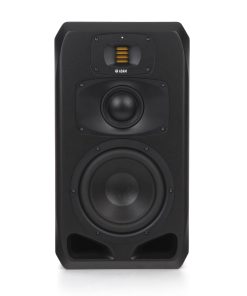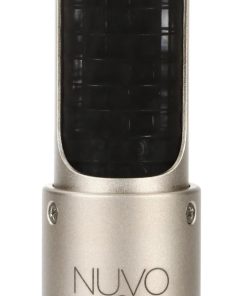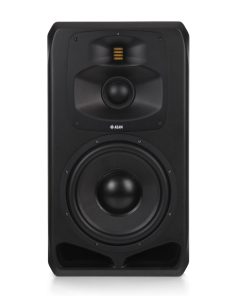SPL Marc One SPL
$ 899,00 $ 224,75
The Monitor And Recording Controller
with innovative features and a 32-bit AD/DA converter. A monitor controller with which you can also record. And both in impressive sound quality.
NUMBER ONE IN SOUND
For us the sound is always in the foreground. When it sounds good, we like to listen. To get such a sound, you need experience and technical finesse. We have incorporated both into the Series One.
Full Control
The big analog volume control offers the perfect control range to adjust the monitoring volume intuitively and precisely.
Speaker & Subwoofer – monitoring without any compromises
In the middle position of the switch, the speakers are switched off, which is convenient because you don’t have to turn the volume control back.
Monitor-Mix
The ratio between the analog line inputs and the digital USB input can be easily adjusted via monitor control.
In the center, all input signals are equally loud. Turned to the left, the analog stereo inputs get louder and the USB input signal gets quieter. Turned from the center to the right, the reverse happens.
Free choice – three stereo inputs
Marc One offers two analog stereo inputs (TRS and RCA) and one digital (USB).
The DAW (Digital Audio Workstation) is preferably connected via USB.
Other input devices such as CD players, mixers, microphone preamps, synthesizers or analog tape machines/tape decks can be connected to the analog line inputs.
Via DIP switch 2 a mixer stage can be activated, which mixes the two analog line inputs together. These can be recorded summed via USB.
The best is just good enough – 32-bit DA-converter
Here, too, the Marc One sets standards. Marc One uses the premium AK4490, 32-bit DAC with AKM’s Velvet Sound®. The AK5552 is used as the analog-to-digital converter and the AK4490 as the digital-to-analog converter.
This technology makes the finest details audible thanks to its low-distortion architecture.
It supports sampling frequencies up to 768 kHz PCM (16x CD resolution) and DSD (Direct Stream Digital) playback up to DSD4 or DSD256 (11.2 MHz) resolution.
Both the AD and DA converters offer 32-bit processing.
This qualifies the Marc One for the highest resolution audio recording and playback currently available.
Marc One automatically synchronizes to the sampling rate applied to the USB input. No further settings on the device are necessary.
A great connection
The USB connection is Class Compliant. This means that all Mac computers and iOS devices like iPads and iPhones can use the full performance of the DA-converter without driver installation.
iOS devices require the “Apple camera adapter”.
For Windows, a driver is only required if higher sampling rates are desired. The driver is available for download at the bottom of this page.
Line Out
The line output “Line Out” provides a mix consisting of all signals from the line inputs and the USB playback.
The monitor control adjusts the ratio between the analog line inputs and the digital USB input.
The line output has unity gain, which is a normal, unregulated output level – it is independent of the volume control.
If, for example, multiple people are to listen in via headphones, an additional headphone amplifier can be connected to the line output.
Marc One can also be easily looped into a monitoring chain without the need for another output at the playback source.
You can also send the signal to another mixer for further processing.
There are no limits to creativity here.
Perfectly monitored
Marc One allows three different monitoring modes.
The mix can be monitored in “Stereo” or mono compatibility can be checked in “Mono”.
A special feature is the channel swap function:
L/R > R/L
This function reverses the stereo image. Left becomes right and right becomes left.
This is especially important and extremely time-saving when you are searching your sound library for samples in video dubbing that should match a scene with direction of movement.
If the direction is not correct, you usually have to load the sample into the DAW to switch channels before you can hear if the sample fits. With the L/R > R/L function this is no longer necessary. You can now simply swap the direction of movement while prelistening samples in the library.
The headphone output stage
Weak sound on headphones?
Not enough power?
Not here. Marc One delivers a full headphone sound – and that up to really loud.
The output stage of the headphone amplifier is designed as a push-pull amplifier in class AB mode. The bipolar transistors share the amplification of the positive and negative half-waves, which produces a higher gain and a higher output voltage than in Class A operation, where only one transistor amplifies both half-waves.
The output stage transistors are thermally coupled and thus run particularly coherently, which contributes to a consistent and stable sound image.
The power supply has a buffer circuit with low source resistance, ensuring generous current reserves even when operating low-impedance headphones.
Prompt Delivery and Professional Packaging
Our long-standing partnership with UPS FedEx DHL and other global carriers lets us offer a range of shipping services. Our warehouse staff is extremely skilled and will package your items according to our precise and exact specifications. Your goods will undergo an extensive inspection and be safely packaged prior to being sent out. Each day, we ship to thousands of customers in many countries. The fact that we are committed to becoming the biggest online retailer in the World is clear. These warehouses are in Europe in the same way as they are in USA.
Note: Orders that include more than one item are assigned a processing period depending on the item.
Before shipping, we will inspect thoroughly the items you have ordered. Most orders are shipped within 48 hours. Expected delivery time is between 3-7 days.
Returns
Stock is dynamic. It's not entirely managed by us since we are involved with multiple entities, including the factory and the storage. The actual stock can change at any moment. It is possible that your order may be out of stock once the order has been placed.
Our policy lasts for 30 days. We cannot exchange or refund your order if it has been 30 days from the date of purchase.
For your item to be returned it must be in its original packaging, unopened and in the condition you received it. The item must be in its original packaging.
Related products
Equalizers
Recording Equipments
Microphones
Monitor
Recording Equipments
Microphones
Monitor
Subwoofer
Monitor
500 Series
Recording Equipments
Recording Equipments
Recording Equipments
Microphones
Recording Equipments
Mic Preamp
Monitor Systems
Accessories
Monitor
Mic Preamp
Monitor Systems
Microphones
Accessories
Microphones
Monitor Systems


